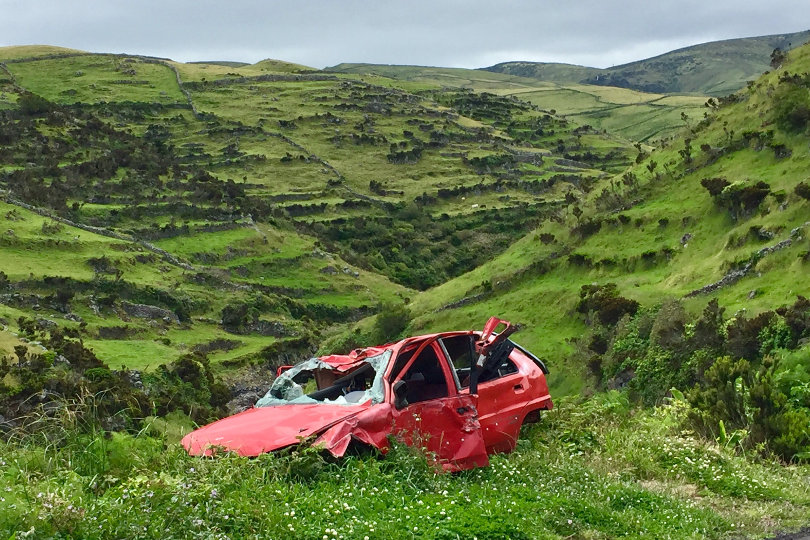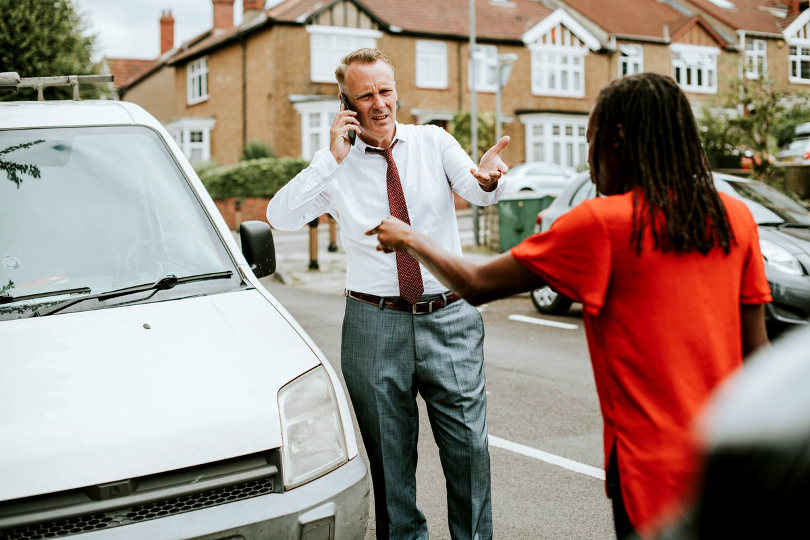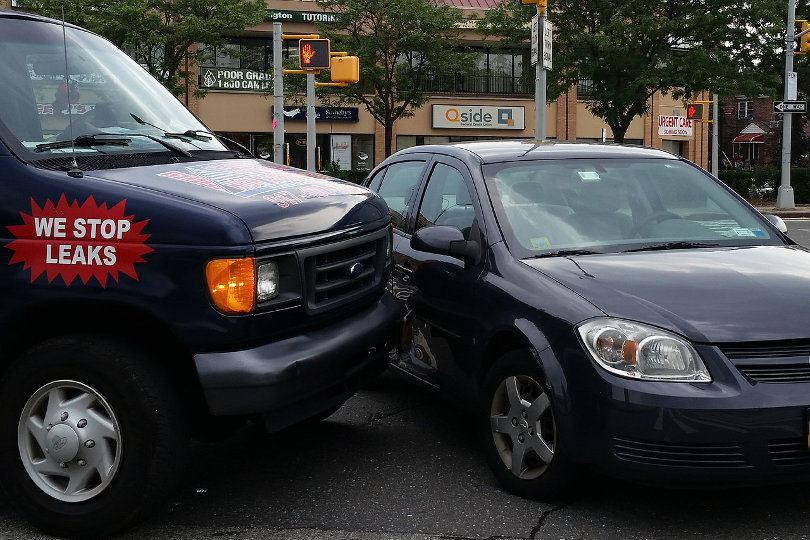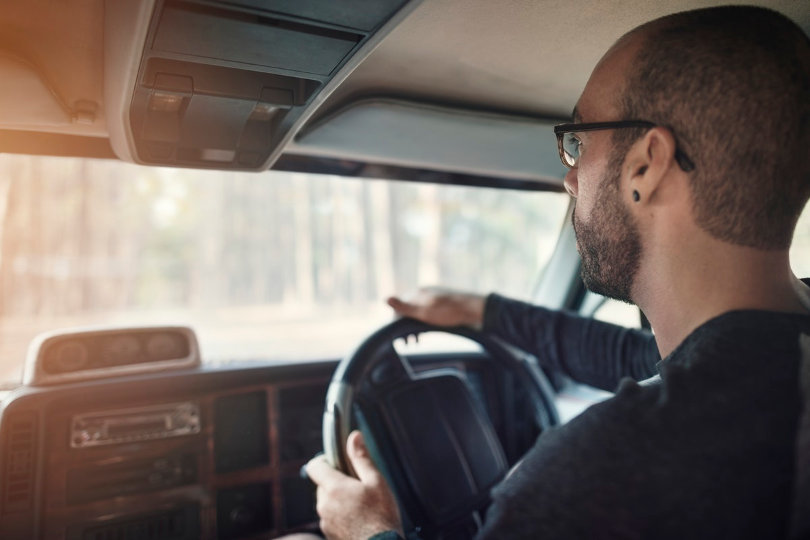There is no information about whether your car’s color will put you at a higher risk of getting into car accidents. What we do know, however, is that some color cars get into more accidents than others.
Kelley Blue Book says that silver is the most popular car color. Yet, despite their prevalence on the roadway, silver cars do not account for the majority of car accidents. In fact, black cars are more likely to get into collisions than any other color car, per Reader’s Digest.

Continue reading to learn more about how car colors factor into collisions.
What Is the Leading Cause of Traffic Accidents?
Human error accounts for a majority of all auto accidents, according to the National Highway Traffic Safety Administration (NHTSA). About 94 percent of collisions are caused by things like speeding, distracted driving, and intoxication.
Other leading causes include things like vehicular malfunction, poor roadway conditions, and inclement weather. From this data, we can assume that color plays no role in causing car accidents.
White Cars Get into the Least Amount of Accidents
Reader’s Digest says that white cars are 12 percent less likely to get into accidents than any other color car. Cream, yellow, and beige cars are also top safety contenders.
The reason? Visibility. At night, these cars are just easier to see. It has nothing to do with who is driving the car (although teens have elevated accident rates, per the Centers for Disease Control and Prevention).
Cars That Get into the Most Collisions
The jury is still out on what type of car gets into the most collisions. However, Forbes lends some insight on the matter. They said (perhaps unsurprisingly) that coupes and sports are more likely to get into accidents
Some reasons for this include:
- People with these types of vehicles are inclined to speed or perform risky driving maneuvers.
- While speeding, people might lose control of their cars.
- People with coupes or sports care are more likely to engage in street racing.
In the event of a crash, coupes and sports cars do not offer the same level of protection as a truck or SUV would. This can mean disastrous things for the driver and their occupants.

Things That Affect Your Chances of Getting into an Auto Accident
Now that we’ve established that color does not play a role in accident prevention, here are some things that can increase the rate of you getting into a collision:
Your Age
Per the Centers for Disease Control and Prevention (CDC), teens and seniors are more likely to get into accidents. The reason is that teens do not fully understand the ramifications of speeding and distracted driving. The CDC says that teens’ brains are still developing, and they are more likely to make poor decisions than their grown counterparts.
On the other side of the coin, seniors are also more likely to get into accidents. This is not because of poor decision making, however. This is because seniors have slower reflexes, poor vision, and may be on several mind-altering medications.
Drunk Driving
Everyone knows that drunk driving is dangerous, but few understand how truly hazardous it is. The NHTSA says that every day, 28 people die in drunk driving crashes. This because drunk driving:
- Slows your reflexes
- Alters your decision-making skills
- Blurs your vision
- Brings on irrational emotions
- Causes a loss of coordination
Even though most states have capped the legal limit at 0.08 percent, even just one drunk could elevate your chances of getting into a crash.
Speeding
The NHTSA says that speeding is a factor in nearly one-third of all crashes. Even with safety features like air bags, smart brakes, and seat belts, speeding contributes to thousands of crashes every day.
Speeding gives motorists less time to respond appropriately to certain hazards.

What Can I Do to Reduce My Chances of Getting into an Accident?
If you own a black car, painting it white will not necessarily make you safe. While you cannot control the actions of other motorists, here are some things that you can do to promote your own safety:
Obey the Speed Limit (or at Least Keep up with Traffic)
One of the best things you can do to stay safe is to obey the rules of the road––and that means keeping a reasonable speed. Even though the speed limit on a highway might be 60 miles per hour, if everyone else is going 80, it is in your best interest to go with the flow.
Drive Carefully in Rural Areas
Some areas come with unique sets of hazards that you should be aware of. For instance, suppose that you are driving on a rural, two-lane road surrounded by a dense forest. To avoid hitting a wild animal, like a deer, you should:
- Adjust your driving speed
- Turn on your headlights
- Be vigilant at dusk and dawn
- Avoid swerving
- Honk when you see an animal
Take Periodic Driving Classes
Dusting off your driver’s ed books and scanning its information can prove invaluable when it comes to making you a safe driver. Some insurance companies even offer discounts for people who take driver’s ed courses. You could find one either online or at a traffic school near you.
Come to a Complete Stop at Stop Signs and Red Lights
Often, when drivers approach a yellow light at an intersection, they speed through the light as an attempt to “beat it.” However, this can prove especially dangerous. You should also prepare yourself to come to a complete stop when approaching a yellow light.
Additionally, avoid coming to “rolling stops” at stop signs. You do not want to be held liable for the damages arising from an accident if you are found responsible.

In Summary
So, your car’s color does not affect your chances of getting into an accident. However, the things you do behind the wheel can. You can learn more about best driving practices by clicking here.







